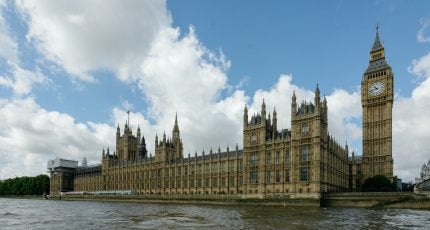
The UK’s Department of Energy Security and Net Zero has announced, in the same week that Britain became the first industrialised nation to end its 150-year use of coal for power production, £21.7 billion of funding for what the government is calling a ‘new era for the clean energy industry’ with extensive support for the country’s carbon capture clusters and hydrogen technology. The UK will be among the first to deploy this technology at scale, which will be concentrated on the ‘Track-1’ Hynet and East Coast clusters at Merseyside and Teeside in northern England.
The projects are expected to create thousands of jobs, attract £8 billion of private investment, and accelerate the UK towards ‘net zero’ in 2050.
Prime minister Keir Starmer said, in a speech announcing the funding and the necessary agreements with industry: “We’re reigniting our industrial heartlands by investing in the industry of the future. [This] announcement will give industry the certainty it needs – committing to 25 years of funding in this groundbreaking technology – to help deliver jobs, and kickstart growth.”
The announcement confirms that up to £21.7 billion of funding will be available, over 25 years, aimed at making the UK an early leader in 2 growing global sectors, CCUS and hydrogen, to be allocated between these 2 clusters. The UK’s commitment was first made in 2009. The UK has enough capacity to store 200 years’ worth of emissions – making CCUS a revolutionary method in tackling the climate crisis and helping industry to decarbonise.
The International Energy Agency and the Intergovernmental Panel on Climate Change have endorsed CCUS as a critical tool in decarbonisation, particularly in heavy industries such as cement and steel.
An up and running carbon capture industry is expected to add around £5 billion per year to the UK economy by 2050 and the backing of these 2 sites is should send a clear signal to investors that the UK is ‘open for business’.
Comment
Trade body OEUK speaking for offshore energy welcomed confirmation of the £21.7 bn of funding that can help kickstart the UK’s Carbon Capture, Usage and Storage (CCUS) sector, starting with the deployment of the Hynet cluster in Merseyside, and the East Coast Cluster in Teeside and Humberside, known as Track-1 clusters. Much of the funding (£20 bn) was announced by chancellor Hunt during the last government, with a £1.7 bn uplift from the new government.
OEUK has published its ‘CCUS Insight’ report which outlines six key recommendations to accelerate development of the industry: these include strengthening carbon pricing and markets for CCUS investment, the creation of a robust carbon market, including mutual recognition of UK and EU emissions trading schemes, facilitating the removal the regulatory barriers to non-pipeline and cross-border CO2 transportation, and accelerating power CCUS projects to meet 2030 goals.
Clare Jackson, CEO of Hydrogen UK, said: “We are thrilled to see the UK government’s commitment to advancing Track-1 clusters in partnership with the private sector. The integration of CCUS technology with hydrogen production is pivotal for achieving our net zero targets. CCUS-enabled hydrogen not only provides a low carbon, and scalable energy solution but also ensures the UK remains at the forefront of the global hydrogen economy.”






